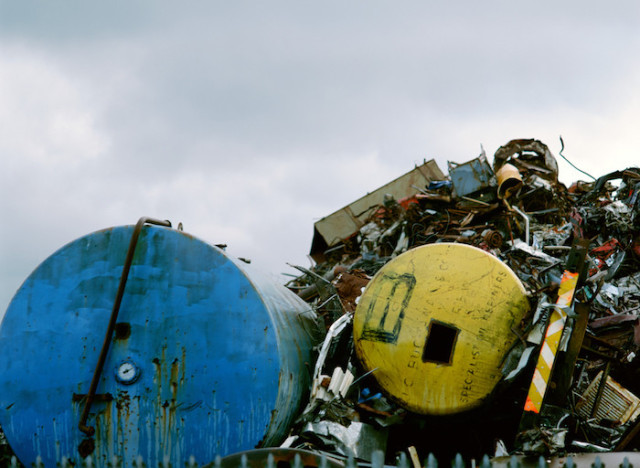
open_resource by SUEZ
although it is difficult to quantify, the contribution of climate change waste is proven. Manageability and recoverability are therefore essential to combat the warming of the planet. Lighting Jean-Baptiste Bahers, teacher-researcher in environmental assessment and territorial ecology at École des métiers de l'environnement Rennes.
selective sorting, recycling, recovery... These concepts are now part of our daily lives. But when was waste management?
I am tempted to answer: at the dawn of time! Collection and reuse have always existed, but mentalities, discourses and processes that have evolved. In France, for example, the massive use of virgin materials (including plastics) from the 1890s has contributed to the decline of the trade of chest, and gave birth to the concept of urban waste and to businesses that provide management. Some major current operators were born in this sphere, between the years 1910 and 1940.
you mentioned a change in attitudes, what is it?
until the 1990s, the waste had a negative connotation, it was only garbage that should be eliminated by burying them in the ground or incineration. Recycling remained minority. little by little speeches have evolved into a positive connotation of waste, thanks to the mobilization of environmental associations, institutions and companies in the sector. It makes even the bad sorter, today!
there is also much talk of circular economy, covered by this term?
is a political concept and economic appeared for the first time in China in the early 2000s and which gave rise to a law passed in 2008 in France, it has emerged in the discussions around the Grenelle of the environment. Circular economy is not stabilized scientific definition. However, there are operational definitions such as that of the Ademe *, who speaks of an economic system interchange and production which, at all stages of the life cycle of products, aims to increase the efficiency of the use of resources and lessen the impact on the environment, while developing the well-being of individuals.
what the waste recovery fit in this approach?
this is one of the three pillars of the circular economy, the other two being the eco-design and industrial ecology *. However, one must distinguish the material recycling (recycling and reuse) of energy recovery, which consists in transforming waste to produce electricity or heat. The first is doubly beneficial since it avoids both tap into deposits of non-renewable resources and consume energy. It is strongly encouraged by the regulations.
Quid of ecodesign?
intervenes at the other end of the chain over the recovery. its objective is to reduce the environmental impact of goods and services by creating appropriate centres for recycling or designing easier to recycle products after production.
how sorting is an important step in the management of waste?
it increases the technical performance of the processes. Indeed, it is easier to treat waste of the same nature rather than a mixture of substances. Note that over time the responsibility of the first sort is escalated from manufacturers to consumers, whether individuals or companies. This was good, but should also involve the citizens more upstream in the debates so that sorting is not only lived as a constraint.
what is your vision of recovery of the waste in the long term? are we on track?
I think. But I believe that we must also act on our consumption patterns to use fewer resources and more sober technologies on the energy plan another major challenge is the proximity: recycled are often exported to the other side of the world for use in the manufacture of consumer goods that require raw materials and energy.
why not recycle them locally to create employment and wealth on our territories? Or even make objects value added with the 'upcycling', which is to recycle industrial wastes into collective creations of applied arts?
to complete this interview and deepen your understanding of the impact on the management of waste on climate issues, discover 21 concrete solutions of circular economy from SUEZ recycling and recovery website by clicking here.
has
to learn more, go to the SUEZ
open_resource topic
No comments:
Post a Comment